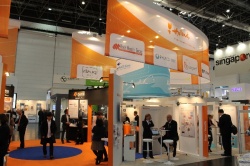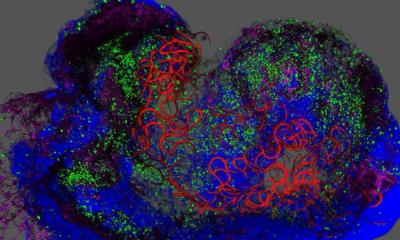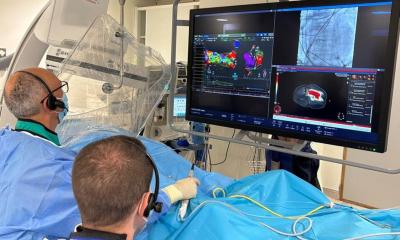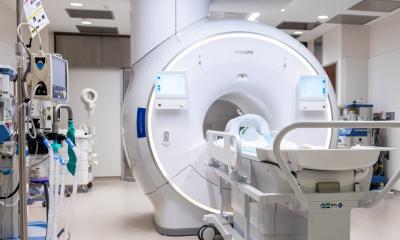Dutch innovation received great feedback at MEDICA
The industry association FME-CWM and the Task Force Health Care (TFHC), a platform for the Dutch medical-technological and life sciences and health sector, had joined forces to organize an attractive Dutch pavilion in Hall 16 at MEDICA.


At the pavilion, a top selection of innovative SMEs presented their new products and solutions among others recent university spinoffs. In addition to the booths, the “Innovation Plaza” at the centre of the pavilion hosted an artsy poster exhibit of small companies which have barely made a showing on the market as yet. “Self-monitoring homecare solutions, technology for non-invasive diagnostics, for rehabilitation, e-health and many further areas were part of the innovative products on display”, mentions Peter Post, General Manager of the TFHC.
The feedback from exhibitors was extremely positive – here’s a glimpse.
“We very much appreciated the overwhelming interest attendees took in our solutions”, summarized Remy Croese, KLS Netherlands. The company focuses on robots and software enabling patient-centred packaging of pharmaceuticals. “We even had a German TV broadcaster at our booth who was attracted by the innovative character of our offering”, added Croese.
“My product will become available in 18 additional countries”, outlined Jackie Schooleman enthusiastically. “Wow – what a success”, added the CEO, Virtual Proteins.
“After eight years of intensive work in R&D, we are finally entering the market with our Lithium Minilab”, explained Huub Maas, CEO, Medimate. “MEDICA has turned out to be a great starting point for us.”
Those four highly successful days at MEDICA saved the Dutch company representatives weeks of tedious travelling to meet partners and distributors – this was the general message from highly satisfied exhibitors. It looks very much like they will come back to Düsseldorf next year.
29.11.2013





